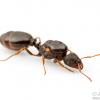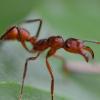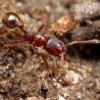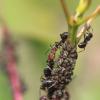- Formiculture.com
- Forums
- Gallery
- Members
- Member Map
- Chat

Aphids
Started By
Will230145
, Feb 27 2018 12:53 PM
12 replies to this topic
#1
 Offline
-
Posted February 27 2018 - 12:53 PM
Offline
-
Posted February 27 2018 - 12:53 PM
I was wondering if anyone has kept aphids for ants (not in a naturalistic setup), and if, describe how you did so!
Thanks!
Thanks!
#2
 Offline
-
Posted February 27 2018 - 1:11 PM
Offline
-
Posted February 27 2018 - 1:11 PM
From what I've heard it's exceptionally challenging to do. Aphids are picky about their host plants and you need to have live plants for them available at all times
#3
 Offline
-
Posted February 27 2018 - 1:40 PM
Offline
-
Posted February 27 2018 - 1:40 PM
#4
 Offline
-
Posted February 27 2018 - 2:34 PM
Offline
-
Posted February 27 2018 - 2:34 PM
I know, but couldn't you put in the stems of plants that the aphids like in the outworld?
#5
 Offline
-
Posted February 27 2018 - 2:41 PM
Offline
-
Posted February 27 2018 - 2:41 PM
I know, but couldn't you put in the stems of plants that the aphids like in the outworld?
You could but you would run into the problems of having to constantly replace the stems due to them drying out and become useless for the aphids. This could then lead to either the aphid colony not reproducing very fast or not even producing at all. I'd say if you're going to go the aphid route do a lot of research on what that species really eats off of and put that in the out-world otherwise it would be almost impossible to do what you're asking
- LC3 likes this
Colonies:
Founding:
Camponotus cf. Modoc
Camponotus cf. Herculeanus
Dream Ants:
Stenamma Diecki
Solenopsis Molesta
Manica Invidia
Camponotus Herculeanus
Lasius Latipes
Dorymyrmex Pyramicus
Tapinoma Sessile
#6
 Offline
-
Posted February 27 2018 - 7:33 PM
Offline
-
Posted February 27 2018 - 7:33 PM
The most common aphid rearing method I've seen is using pea aphids and rearing them on newly germinated pea sprouts grown on wet paper, you can buy pea aphids online. The problem is that it's not a long term setup meaning you'll have to change the peas quite frequently, as the sprouts get overwhelmed and die quickly (especially with no natural predators and the fact that they are sprouts).
You can probably pull it off if you have a hardy plant that requires little to no substrate or maintenance and an aphid species that doesn't grow too fast. Otherwise you would probably gain more just by leaving a few flowers in there and letting the ants drink the nectar.
#7
 Offline
-
Posted February 27 2018 - 11:23 PM
Offline
-
Posted February 27 2018 - 11:23 PM
I had some ivy growing with a couple aphids on it that a Camponotus colony tended for a short period of time. The other problem you'll run into is that the secretions produced by the aphids are dependent on the aphid species and the host plant. So, even if you do have aphids and a compatible plant, the sugars the aphids produce are generally easily bested in concentration, and therefore attractiveness, by homemade sugar water. Sure, the secretions will be more complex than sugar water, and it will be interesting to watch. But currently, it's not really worth it, given our current understanding of their biology and the difficulty it takes to cultivate them.
Edited by drtrmiller, February 27 2018 - 11:24 PM.
- LC3 likes this
byFormica® is the manufacturer of the iconic nectar feeders and Sunburst Ant Nectar.
byFormica ant products always deliver consistent performance, convenience,
and reliability, making them among the most beloved ant foods and kit enjoyed by
ant keeping enthusiasts worldwide. For more information, visit www.byFormica.com.
#8
 Offline
-
Posted February 27 2018 - 11:28 PM
Offline
-
Posted February 27 2018 - 11:28 PM
#9
 Offline
-
Posted February 28 2018 - 8:22 AM
Offline
-
Posted February 28 2018 - 8:22 AM
OK, do you guys know any formulas for a sugary drink for the ants?
#10
 Offline
-
Posted February 28 2018 - 8:34 AM
Offline
-
Posted February 28 2018 - 8:34 AM
OK, do you guys know any formulas for a sugary drink for the ants?
any sort of sweet like honey, molasses, & sugar diluted into water
- LC3 likes this
Colonies:
Founding:
Camponotus cf. Modoc
Camponotus cf. Herculeanus
Dream Ants:
Stenamma Diecki
Solenopsis Molesta
Manica Invidia
Camponotus Herculeanus
Lasius Latipes
Dorymyrmex Pyramicus
Tapinoma Sessile
#11
 Offline
-
Posted February 28 2018 - 8:00 PM
Offline
-
Posted February 28 2018 - 8:00 PM
The most common aphid rearing method I've seen is using pea aphids and rearing them on newly germinated pea sprouts grown on wet paper, you can buy pea aphids online. The problem is that it's not a long term setup meaning you'll have to change the peas quite frequently, as the sprouts get overwhelmed and die quickly (especially with no natural predators and the fact that they are sprouts).
You can probably pull it off if you have a hardy plant that requires little to no substrate or maintenance and an aphid species that doesn't grow too fast. Otherwise you would probably gain more just by leaving a few flowers in there and letting the ants drink the nectar.
No signs have been shown for pea aphids to have any association with ants, unfortunately.
Many people grow plants, then get aphids and use the stems. I think this is being stressed as too hard, when really, if you're committed this could be easy.
I have aphids in my natural setup, I don't have to replace the plants cause they are in the setup.
Ant Keeping & Ethology Discord - 2000+ Members and growing
Statesideants.com - order live ants legally in the US
#12
 Offline
-
Posted February 28 2018 - 9:25 PM
Offline
-
Posted February 28 2018 - 9:25 PM
The most common aphid rearing method I've seen is using pea aphids and rearing them on newly germinated pea sprouts grown on wet paper, you can buy pea aphids online. The problem is that it's not a long term setup meaning you'll have to change the peas quite frequently, as the sprouts get overwhelmed and die quickly (especially with no natural predators and the fact that they are sprouts).
You can probably pull it off if you have a hardy plant that requires little to no substrate or maintenance and an aphid species that doesn't grow too fast. Otherwise you would probably gain more just by leaving a few flowers in there and letting the ants drink the nectar.
No signs have been shown for pea aphids to have any association with ants, unfortunately.
Many people grow plants, then get aphids and use the stems. I think this is being stressed as too hard, when really, if you're committed this could be easy.
I have aphids in my natural setup, I don't have to replace the plants cause they are in the setup.
Well this topic is regarding aphids in a non naturalistic setup.
#13
 Offline
-
Posted March 1 2018 - 1:51 PM
Offline
-
Posted March 1 2018 - 1:51 PM
The most common aphid rearing method I've seen is using pea aphids and rearing them on newly germinated pea sprouts grown on wet paper, you can buy pea aphids online. The problem is that it's not a long term setup meaning you'll have to change the peas quite frequently, as the sprouts get overwhelmed and die quickly (especially with no natural predators and the fact that they are sprouts).
You can probably pull it off if you have a hardy plant that requires little to no substrate or maintenance and an aphid species that doesn't grow too fast. Otherwise you would probably gain more just by leaving a few flowers in there and letting the ants drink the nectar.
No signs have been shown for pea aphids to have any association with ants, unfortunately.
Many people grow plants, then get aphids and use the stems. I think this is being stressed as too hard, when really, if you're committed this could be easy.
I have aphids in my natural setup, I don't have to replace the plants cause they are in the setup.
Well this topic is regarding aphids in a non naturalistic setup.
I quoted you on your pea aphids, not anything about the naturalistic setup.
Ant Keeping & Ethology Discord - 2000+ Members and growing
Statesideants.com - order live ants legally in the US
1 user(s) are reading this topic
0 members, 1 guests, 0 anonymous users




















